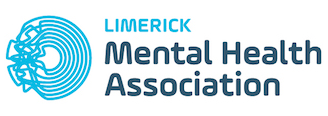Written by AnneMarie McDonnell, a volunteer with the Limerick Mental Health Association and graduate of the University of Limerick.

It is no exaggeration to say that alcohol is deeply woven into the fabric of Irish life. Many of us enjoy a few drinks to round off the working week. We drink to celebrate life’s milestones with alcohol playing a starring role in our weddings, christenings, birthdays and other occasions. Many of us also turn to alcohol in life’s darker moments with events such as funerals and job losses also tending to be accompanied by a few drinks under the guise of ‘helping us cope’.
Of course, other nations also consume alcohol but the fact that it has become so synonymous with the Irish ‘craic culture’ makes it slightly more difficult for us to escape the social pressure to consume it. And our relationship with the booze is certainly well established in this country. It is intrinsically linked to the annual celebration of our very Irishness which is St Patrick’s Day. We get all misty eyed each Christmas as we see the snow outside St James’ Gate in that brilliantly produced and very evocative ad. The first thing we do with visiting dignitaries or celebrities is shove a pint of the black stuff into their hand for a photo op. In these ways and more, alcohol has come to symbolise the very essence of being Irish. Amidst all the frivolity, however, we sometimes tend to forget that alcohol is a mind-altering drug that should be consumed with great care.
It is important to be aware that mental health problems such as anxiety and depression can be exacerbated by excessive alcohol use.
A 2017 study published by the by the College of Psychiatrists in Ireland suggests that a large proportion of the symptoms reported on entry into psychiatric treatment facilities in this country were found to be alcohol related. [1] A further study published in the Journal of Affective Disorders in the following year and looking specifically at older Irish females in Ireland concluded that excessive drinking was likely to increase incidence of depression and anxiety among this demographic. Furthermore, problem drinking was found to lead to a higher likelihood of persistent depressive symptoms.[2]
Of course, alcohol consumption won’t affect us all in the same way but it is nevertheless important that we are mindful of what are very real risks to our mental health. If you feel that you wish to reduce your intake, one simple way is to replace every second drink with a non-alcoholic alternative. There also happens to be a growing sober movement in Ireland at the moment which has opened up the market for an amazing range of tasty low and no alcohol drink alternatives.
Above all else it is crucial that we remember that social events have the potential to be incredibly enjoyable in their own right without the need for a single drop of alcohol to be consumed. Why not give the booze a little break and see for yourself?
[1] Gallagher, C., Radmall, Z., O’Gara, C., & Burke, T. (2018). Anxiety and depression among patients with alcohol dependence: Co-morbid or substance-related problems? Irish Journal of Psychological Medicine, 35(2), 121-126. doi:10.1017/ipm.2017.25
[2] Carvalho et al (2018) Different patterns of alcohol consumption and the incidence and persistence of depressive and anxiety symptoms among older adults in Ireland: A prospective community-based study. Journal of Affective Disorders , 238 , pp. 651-658
